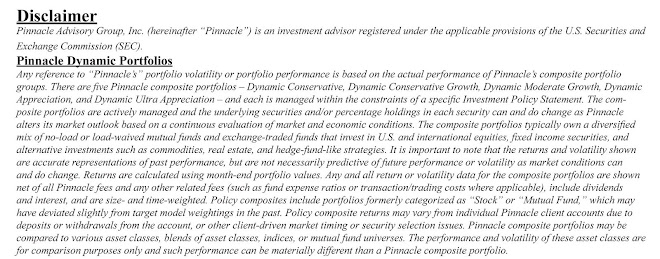One of the things we are always trying to assess is what the current “consensus” market opinions are. Contrarian investors typically look to steer away from the herd, since the market presumably has discounted most of the news by the time the most investors have gravitated to a particular idea. This is especially important at market tops and bottoms, but perhaps less relevant somewhere in between – but I digress. Here are a few thoughts I think are somewhat consensus right now:
Equity Markets – Many investors seem to be bullish on equity markets for the next six months, beyond that it seems most believe a bear market may be in the offing. The masses also seem to be looking for a pullback sometime soon as bullish sentiment has picked up to levels not seen in some time. But even those looking for a pullback don’t seem to be anticipating anything worse than a benign adjustment to clear the froth, and then it’s clear sailing until the second half of the year. We are more or less in this camp right now. But it does make me a little nervous that this seems to be a commonly shared view right now.
Bond Markets – Everyone seems to figure that an improving economy ought to lead to higher bond yields over the course of this year. There also seems to be a consensus of somewhere between 4.25% and 5% on the 10-year Treasury as an approximate area where yields could start to cause serious problems for the economy. Most analysts seem to view higher yields in a negative light, and aren't open to the idea that higher yields might actually be good for stock investors if it creates a widespread bond-to-stock move. And beyond a shorter-term pullback, not many other than the perma-bear crowd are looking for a major decline in yields right here. Again, beyond a temporary pullback that we think is likely, we generally agree that yields are likely to rise over the course of the year. But we also think that yields will ultimately be capped from going too high due to low inflation, the Fed anchoring short rates, and structural economic problems. So again, I think we generally favor the consensus.
That’s my view of consensus calls, and I’ve already covered that I’m a bit nervous that we appear to dead on the consensus with our view. Of course, it’s important to note that the research we read is usually independent and consists of very smart analysts that get paid to make such calls. One must also acknowledge that sometimes the consensus is correct. That being said, it still makes me a bit nervous to be aligned with the herd.

